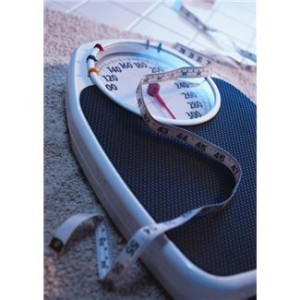- Calls to this hotline are currently being directed to Within Health or Eating Disorder Solutions
- Representatives are standing by 24/7 to help answer your questions
- All calls are confidential and HIPAA compliant
- There is no obligation or cost to call
- Eating Disorder Hope does not receive any commissions or fees dependent upon which provider you select
- Additional treatment providers are located on our directory or samhsa.gov
Bulimia: Regaining Your Intuitive Ability to Detect Hunger

We eat because food is readily available wherever we go – not just because we are hungry. We see advertisements for food while driving, watching TV, and attending events. Dr. Gene-Jack Wang, a physician at Brookhaven Lab and the Mount Sinai School of Medicine, shows, in his research, that seeing pictures of food releases dopamine neurotransmission, which primes the brain to seek reward, and prompts those with disordered eating to eat.1
What is the number one cause of disconnection from your appetite?
DIETS!
Consider this: If you are hungry and you do not eat; if you eat foods that you do not like; if you binge because you have been depriving yourself; if you eat measured proportions; or if your meals are planned around the clock, then you are relying on external controls to gauge your appetite, and you will eventually lose the ability to notice your own body’s appetite cues.
I wrote the book, Diets Don’t Work, because most people with bulimia will tell you the disorder started with a diet. If people could learn a way to achieve their ideal weight without dieting, they may be spared from going down this path. Earlier in my career, I worked predominately with people who were struggling with emotional overeating and yo-yo dieting. I saw the emotional anguish, decreased self-esteem, and obsessive thinking that was similar to eating disorders because I, myself, had suffered from an eating disorder years earlier. The key attributes of both types of patients are persistent thoughts of food, weight, diet, body image, or feeling out of control, and using food to suppress emotions.
In 1950, the United States military conducted an experiment called the Keys Semi-Starvation Study.2 The study involved the most healthy, physically fit, and emotionally stable volunteers. Their food intake was reduced to one-third of what is normal. Their eating habits and emotions were observed, before and after the experiment. This study revealed that they began suffering from obsessions with food, binging, purging, anxiety, depression, and erratic emotions. Observation continued for months following the study, and the participants were still exhibiting these behaviors. One year later, they had not returned to their normal eating habits.

Bulimia is especially misunderstood by most. The article, A Day in the Life of a Bulimic 4, reveals the true devastation caused by bulimia. Bulimia is often accompanied by periods of fasting and binging. After a binge, the sufferer has an uncontrollable compulsion to get rid of the food. Purging is achieved by vomiting, excessive exercise, and/or using laxatives or diuretics.
When you are suffering with bulimia, regaining your ability to detect hunger is very hard. As with most eating disorders, the process usually begins with a meal plan that is designed to familiarize your body, mind, and emotions with normal eating behaviors. Ideally over time, the plan can be phased out as you become more mindful of your appetite.
This is where real recovery begins.
You can now eat when you are physically hungry, make healthy choices, and stop eating when you are full. You gain the ability to distinguish between physical hunger and other types of hunger.
Here are some tools to help you get in touch with your appetite:

Use a rating scale to evaluate your hunger, by recognizing the appropriate point on the spectrum, to identify when it is best for you to eat, and when it is best for you to stop eating.
If you want to eat, ask yourself if the hunger could be emotional, spiritual, or is it physical?
If you want to eat when you are not hungry, journal one page. Journaling can help you detect if you are stuffing a feeling. Once the feeling is it out on paper, there will no longer be a need to stuff it with food.
If you want a specific food, and you are not hungry, make a deal with yourself that you have that item with your next meal.
If you determine you are not physically hungry but you want to eat, wait 10 minutes to see if the feeling passes.
Some people with bulimia struggle to stop the behavior due to the affect they experience when consuming specific foods or beverages.
To determine if this may be a problem for you, ask yourself these questions:
What food do I usually crave?
How does this food make me feel after I eat it?
Do I often binge after I eat this food?
Do I always think about this type of food?
If you discover a problem with this food, try to omit it from your diet to see if you experience withdrawal symptoms or whether you’re able to refrain from eating it. If this is difficult, then it is almost impossible to stop bulimic behaviors unless this problem is addressed. Talk to your registered dietitian or therapist to determine what to do about this addictive reaction.
Contributed By: Rebecca Cooper, LMFT, LPCC, CEDS, Founder, Rebecca’s House Eating Disorder Treatment Programs, Author, Diets Don’t Work®
Rebecca Cooper, Professional Educator & Founder, is the gifted author of the Diets Don’t Work® structured program. Her creative, unique, and intuitive approach to the life threatening problem of disordered eating has profoundly changed the way this devastating illness is treated. Her extensive experience has enabled her to develop this highly successful program which internalizes new eating behaviors. It is being used by several recovery homes, therapists, eating disorder treatment programs and their clients and is 12-Step compatible. Rebecca was also the first IAEDP Chair President – Orange County and is currently an IAEDP approved Certified Eating Disorder Specialist supervisor (CEDS-S) and international speaker.
References
- Keys, A., Brožek, J., Henschel, A., Mickelsen, O., & Taylor, H. L., The Biology of Human Starvation (2 volumes), University of Minnesota Press, 1950.
- National Eating Disorders Collaboration, April 2015
- Gene-Jack Wang, Allan Geliebter, Nora D. Volkow, Frank W. Telang, Jean Logan, Millard C. Jayne, Kochavi Galanti, Peter A. Selig, Hao Han, Wei Zhu, Christopher T. Wong, Joanna S. Fowler. Enhanced Striatal Dopamine Release During Food Stimulation in Binge Eating Disorder. Obesity, 2011; DOI: 10.1038/oby.2011.27
- http://www.rebeccacooper.com/475/
The opinions and views of our guest contributors are shared to provide a broad perspective of eating disorders. These are not necessarily the views of Eating Disorder Hope, but an effort to offer a discussion of various issues by different concerned individuals. We at Eating Disorder Hope understand that eating disorders result from a combination of environmental and genetic factors. If you or a loved one are suffering from an eating disorder, please know that there is hope for you, and seek immediate professional help.
Reviewed By: Jacquelyn Ekern, MS, LPC on October 20, 2016. Published on EatingDisorderHope.com
